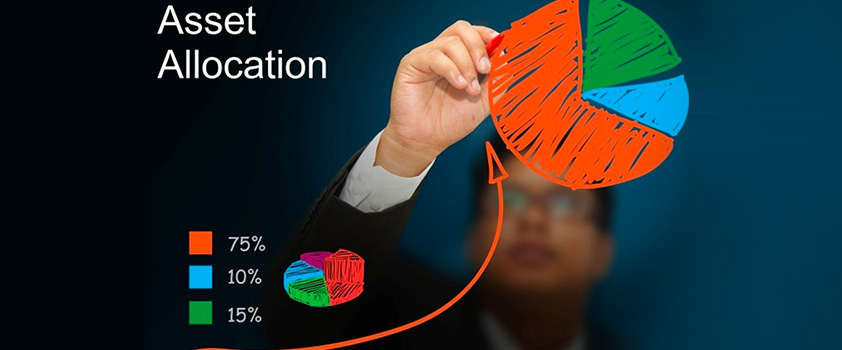INVESTMENT BASKETS :

With gold prices shooting up recently and the stock market entering a volatile phase investors
have been writing in with many questions. Should they be selling theirs shares to lock in to profits ?
https://www.bankbazaar.com/gold-rate-delhi.htmlShould they buy gold through it is a life time high ? Should first time investor go for Equity funds or
stick to fixed depositions ? Asset allocation provides easy answer to most of these questions.
Why Asset Allocation:

Starting your investment journey with an asset allocation plan can lead better return outcomes
in three ways. Once it ensures your portfolio matches your risk appetite. If you are an investor
who will spend sleepless night about a 20% decline in your portfolio value then you obviously
should not be allocation 100% of your portfolio to equity funds where 30% draw-down are not
ruled out.
With a portfolio split equally between equity and debt, you can ensure that your overall portfolio
down only by 15% even if the stock market crashes by 30% .
Factor to Consider :

To craft an asset allocation plan, it is tempting to go by Western thumb rules such as ” Park 100 minus
your age in equities”. [100-age] Rule .
But it is best not to apply such rules blindly if you want to succeed at asset allocation .
There is no single asset allocation thumb rule that will work for everyone . You should decide on your
asset allocation based on the following factors .
1. Your Age :
The younger are, the higher the allocation you can afford to have in risky assets such as equities.
This is because younger investor have the ability to stay invested through draw down in portfolio
value and wait for prices to rebound in the next cycle before their investments. Older investor may
have this luxury .
2. Waiting Period:
In India, stock market cycles usually last 6-7 years from one peak to another . Therefore, if you end up
investing in equities at a market high (which is evident only in hindsight), you may need to endure a 6-7
years , wait for portfolio value to return to even keel. This makes equities unsuitable for financial goals
coming up in less than 6-7 years , as may be forced to withdrawn in un favourable markets. For such goals,
you should use debt heavy portfolios rather than equities-heavy ones. If you have significant liabilities or
loans to services, you may not be able to stomach big swings in your net worth. This reduces and thus
argues for a lower equities allocations in your portfolios.
3. Your Family Situation :
If you have many dependent to take care of and may need to withdraw from your investment often
you should have a higher allocation to safer asset such as debt rather than volatile asset such as equities .
4. Your Liquidity Need :
Some asset can be liquidated at short notice while other can not. Usually financial asset such as stock,
bonds, mutual funds and fixed deposits can be liquidated quickly.
5. Time Is Essence :
Whereas physical asset such as real state or gold take a long time to be liquidated or can be liquidated
only after a significant sacrifices on the prices. In your asset allocation, make sure to have a mixed
illiquid and a liquid asset based on your requirement.
6. Your Risk Appetite:
Irrespective of age, some investors have a lower ability to take in risks than the other.
Some people can not tolerate even a 10% fluctuation in their investment value. Other can easily
survive 50% draw-down. Therefore, gauge your risk appetite, your ability to take losses and then
decide on your asset allocation.

